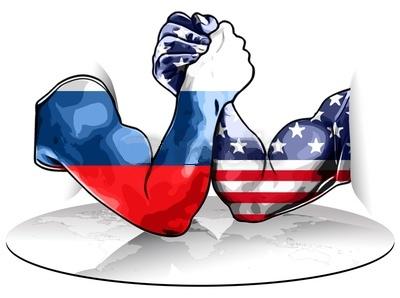US and Russia on the verge of 'new Cold War'
- By Yin Chengde
 0 Comment(s)
0 Comment(s) Print
Print E-mail China.org.cn, July 23, 2015
E-mail China.org.cn, July 23, 2015
|
|
|
Recent months have seen confrontation and tensions between the US and Russia mounting to a new high. |
Recent months have seen confrontation and tensions between the US and Russia mounting to a new high, as a result of full-blown escalation of sanctions and containment moves against Russia by the US, which claims that Russia has failed to honor the Minsk ceasefire agreement, which was met with fierce countermeasures from Russia.
The tough economic sanctions by the US have hardened into a consistent policy. Likewise, the European Union announced on 22 June that it would extend sanctions against Russia by a year. Understandably, the combined effect of these sanctions would further tighten the economic noose on Russia's neck. Russia responded tit-for-tat, announcing its counter-sanction measures would be extended by a year. In the meanwhile, military tension between the two sides further intensified, with increasing military build-up at the Crimea border, compounded by frequent large-scale military exercises and belligerent surveillance-ship encounters. Additionally, the US is planning to deploy heavy weapons in NATO ally states sharing a border with Russia, and NATO has decided to expand its rapid-response forces from 13,000 to 40,000. After its defense ministers' meeting on June 25, NATO announced multiple plans to increase its military presence and engage in institutional reforms in an aim to amplify NATO's military advantage against Russia, indicating military escalation may be in the offing. In an even more perilous sign, Russia and US-led allies are sliding into nuclear deterrence as part of the overall confrontation strategies, threatening to up the ante for both sides. The Western media described the current relations between Russia and the West as at a critical point leading to a "New Cold War".
Admittedly, NATO's military moves and strategies against Russia are primarily orchestrated by the US, and even the EU's decision to continue sanctions against Russia seems to follow the harsh tone adopted by President Obama at the G7 Summit. In essence, the heightened tension between Russia and the US is but a testament to the escalating geopolitical rivalry and strategic containment between the two powers.
The latest escalation in strategic rivalry was triggered by the Ukraine crisis, but it was the inevitable consequence of the intensified containment strategy against Russia. Even in the post-Cold War era, when the former Soviet Union was consigned to history, the US did not cease to regard Russia as a major strategic rival, and continued to contain its international space by nibbling at the old Soviet Union's sphere of influence, culminated with the "Color Revolution" in Ukraine and ultimately a regime change. The real motive: erode Russia's strategic space, or even engineer "zero presence", by unraveling its great-power status as well as its ability to counter the US and other Western powers. Russia had shown restraint towards rounds of eastward expansion by NATO, but US encroachment on Ukraine, a vital strategic buffer zone that shares fraternal relationships with Russia, turned out to be the last straw that prompted a fierce backlash from Russia, thus breaking the security status quo. The U.S. crossed a red line by seeking to turn Ukraine into a bridgehead for counterbalancing Russia in the region and even integrating Kiev into the US sphere of influence.







Go to Forum >>0 Comment(s)